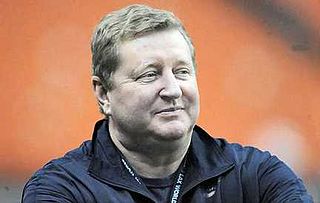A Quote by Jack Kornfield
The goal of practice is always to keep our beginner's mind.
Related Quotes
So the most difficult thing is always to keep your beginner's mind. There is no need to have a deep understanding of Zen. Even though you read much Zen literature, you must read each sentence with a fresh mind. You should not say, "I know what Zen is," or "I have attained enlightenment." This is also the real secret of the arts: always be a beginner. Be very very careful about this point. If you start to practice zazen, you will begin to appreciate your beginner's mind. It is the secret of Zen practice.
In the beginner's mind there is no thought, "I have attained something." All self-centered thoughts limit our vast mind. When we have no thought of achievement, no thought of self, we are true beginners. Then we can really learn something. The beginner's mind is the mind of compassion. When our mind is compassionate, it is boundless. Dogen-zenji, the founder of our school, always emphasized how important it is to resume our boundless original mind. Then we are always true to ourselves, in sympathy with all beings, and can actually practice.
The practice of Zen mind is beginner's mind. The innocence of the first inquiry—what am I?—is needed throughout Zen practice. The mind of the beginner is empty, free of the habits of the expert, ready to accept, to doubt, and open to all the possibilities. It is the kind of mind which can see things as they are, which step by step and in a flash can realize the original nature of everything.
In Japan we have the phrase, "Shoshin," which means "beginner's mind." Our "original mind" includes everything within itself. It is always rich and sufficient within itself. This does not mean a closed mind, but actually an empty mind and a ready mind. If your mind is empty, it is always ready for anything. It is open to everything. In the beginner's mind there are many possibilities; in the expert's mind there are few.
In the beginner's mind there are many possibilities; in the expert's mind there are few.... In the beginner's mind there is no thought, 'I have attained something.' All self-centered thoughts limit our vast mind. When we have no thought of achievement, no thought of self, we are true beginners. We can really learn something.
If we keep a goal firmly in mind, we will know when we have reached it. This gives us a sense of accomplishment and the challenge of establishing fresh, new goals - always keeping the long-range objective in mind. If we can state our goals clearly, we will gain a purpose and meaning in all our actions.
We do believe in setting goals. We live by goals. In athletics we always have a goal. When we go to school, we have the goal of graduation and degrees. Our total existence is goal-oriented. We must have goals to make progress, encouraged by keeping records . . . as the swimmer or the jumper or the runner does . . . Progress is easier when it is timed, checked, and measured. . . .Goals are good. Laboring with a distant aim sets the mind in a higher key and puts us at our best. Goals should always be made to a point that will make us reach and strain.































